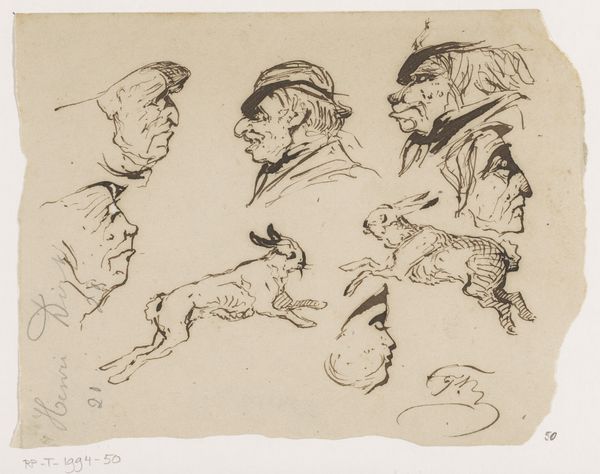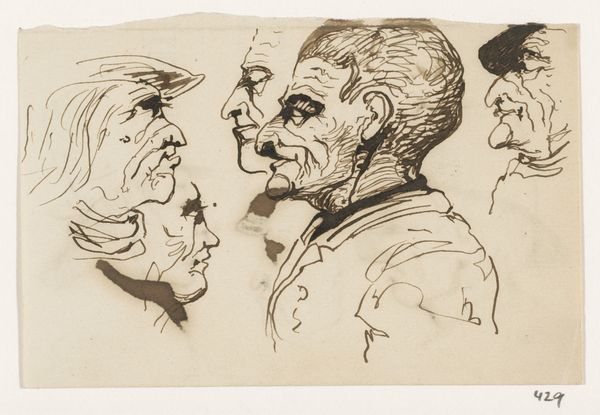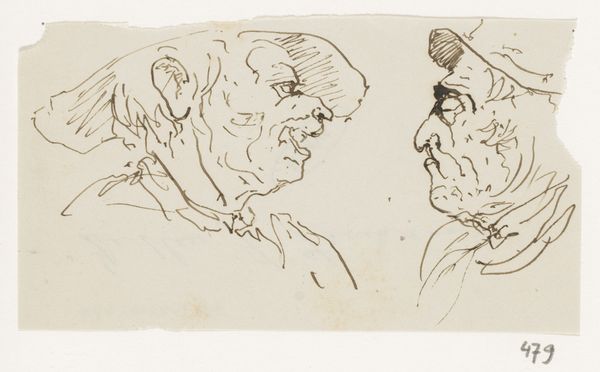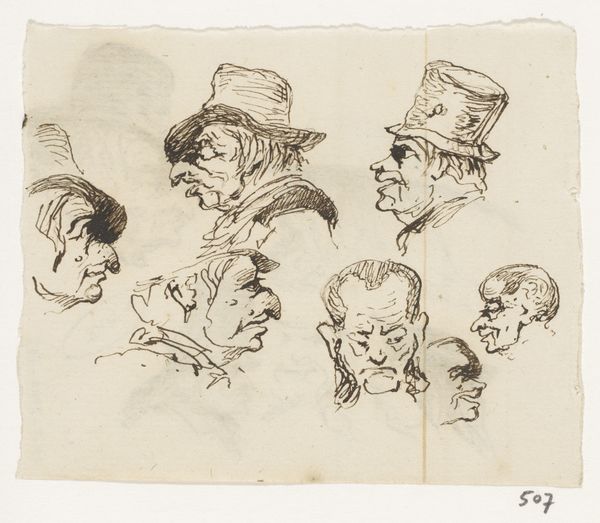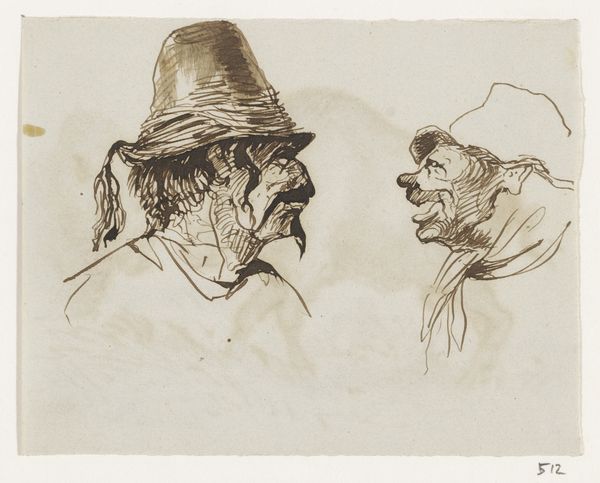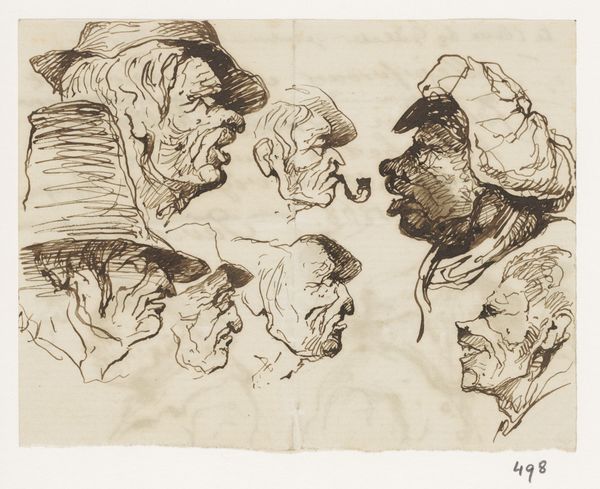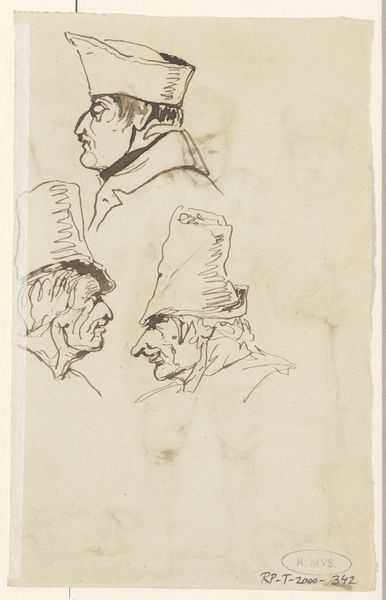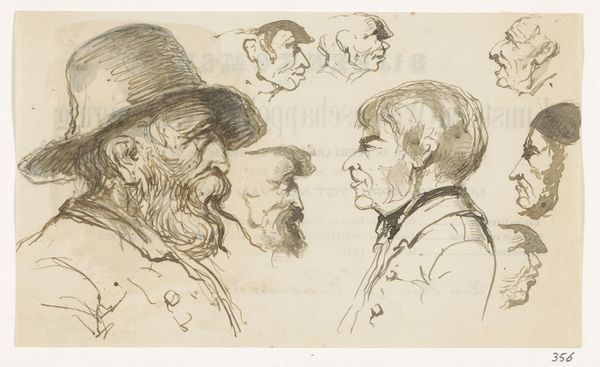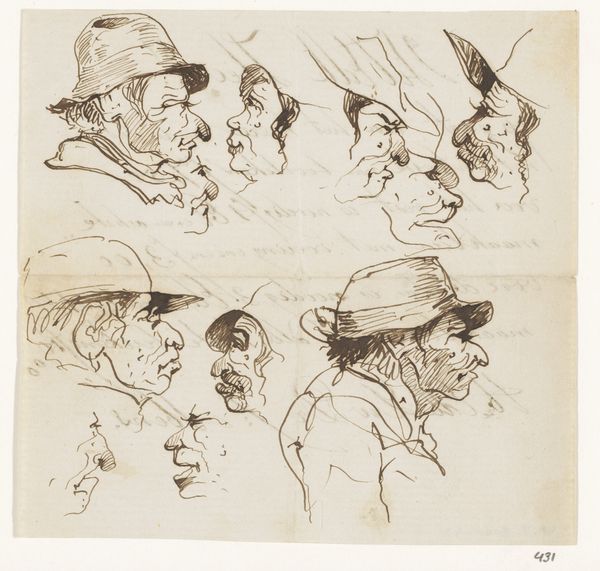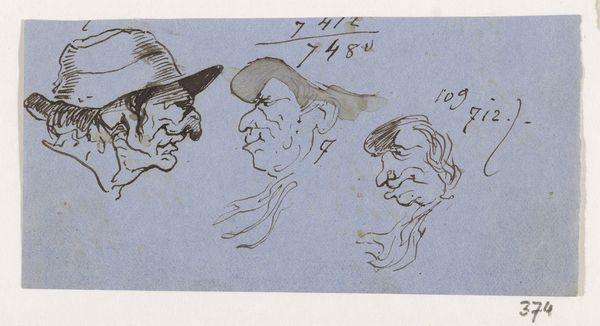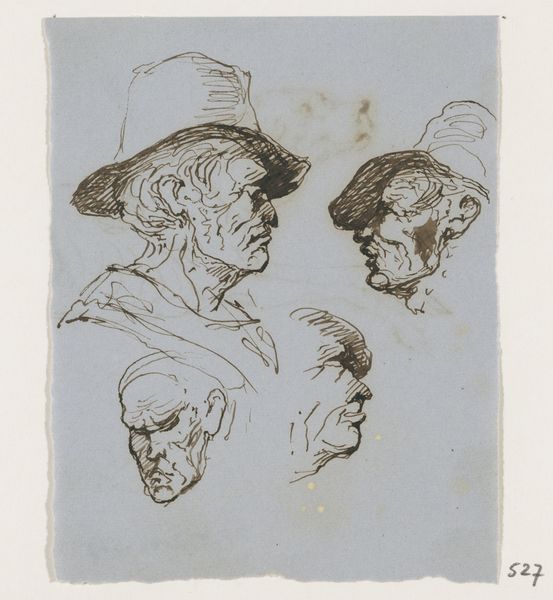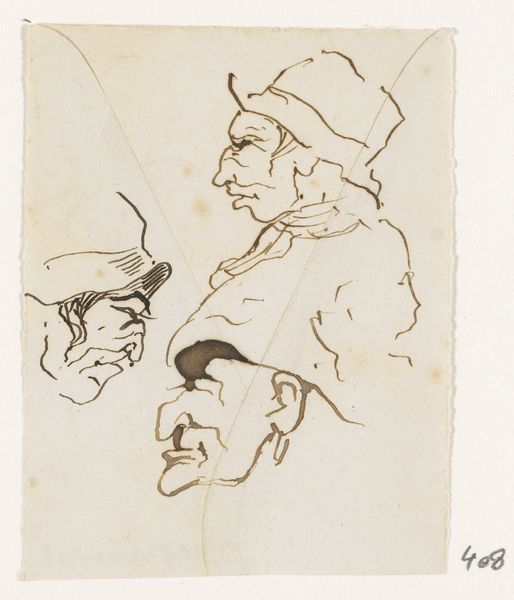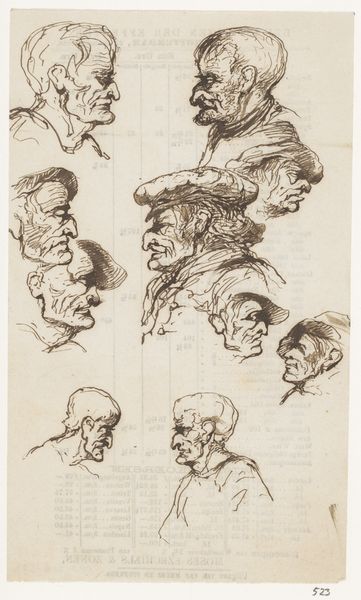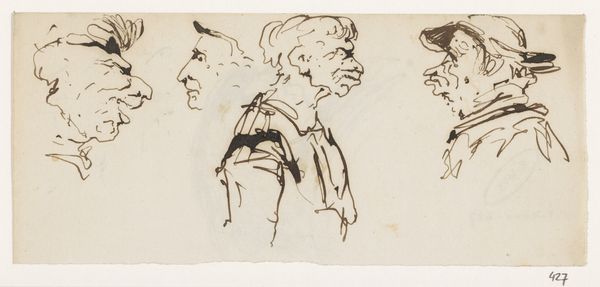
drawing, ink
#
portrait
#
drawing
#
ink drawing
#
figuration
#
ink
#
realism
Dimensions: height 112 mm, width 155 mm
Copyright: Rijks Museum: Open Domain
Curator: Looking at this drawing entitled "Vijf koppen" ("Five Heads"), thought to have been created around 1869 by Johannes Tavenraat, my first impression is of…well, profound weariness. Editor: Yes, there’s a sense of heavy burden. The artist used ink to delineate each figure with economical strokes, capturing the sagging flesh and deep-set lines. It feels like a study in physiognomy. Curator: Precisely! Note the hats, suggesting different walks of life, each carrying stories etched onto their faces. Hats as signifiers have long been visual shortcuts, placing one socially. Here, however, there’s more to it than social signaling. The wear itself has its own symbolism of life lived. Editor: Absolutely. There's a deliberate lack of idealization here; we are presented with an unvarnished view of aging. The medium, ink, further accentuates the gravity. It’s direct, uncompromising, there's no softness afforded by other materials. Curator: I read the central, downward-gazing figure as especially powerful, with the cascading beard echoing sorrow. This evokes themes of wisdom, acceptance, and maybe even a touch of melancholy about human experience. The composition allows each head an individuality, together they signify an overall experience: resilience, maybe. Editor: Indeed, that lower figure's bowed head contributes to a cyclical reading of form, a full formal arc that guides the eye and reinforces themes of… inevitable passage, perhaps. The hatching lines add tonal depth, but also map emotional states of sorrow. It's both structural and evocative. Curator: Beyond being simple portraits, these could be seen as archetypes, each representing a stage in life, connected through shared mortality. I imagine it meant a great deal, the universality they shared as countrymen, perhaps during wartime when it was drawn. Editor: As a formal exercise in lines and contours, it delivers both structurally and semiotically. The drawing makes astute observations of reality to reveal something universally felt in these very realistic, almost blunt figures. Curator: I see now, thank you, a collective expression of perseverance etched in every wrinkle. Editor: A stark and affecting demonstration of aging with raw candor.
Comments
No comments
Be the first to comment and join the conversation on the ultimate creative platform.
